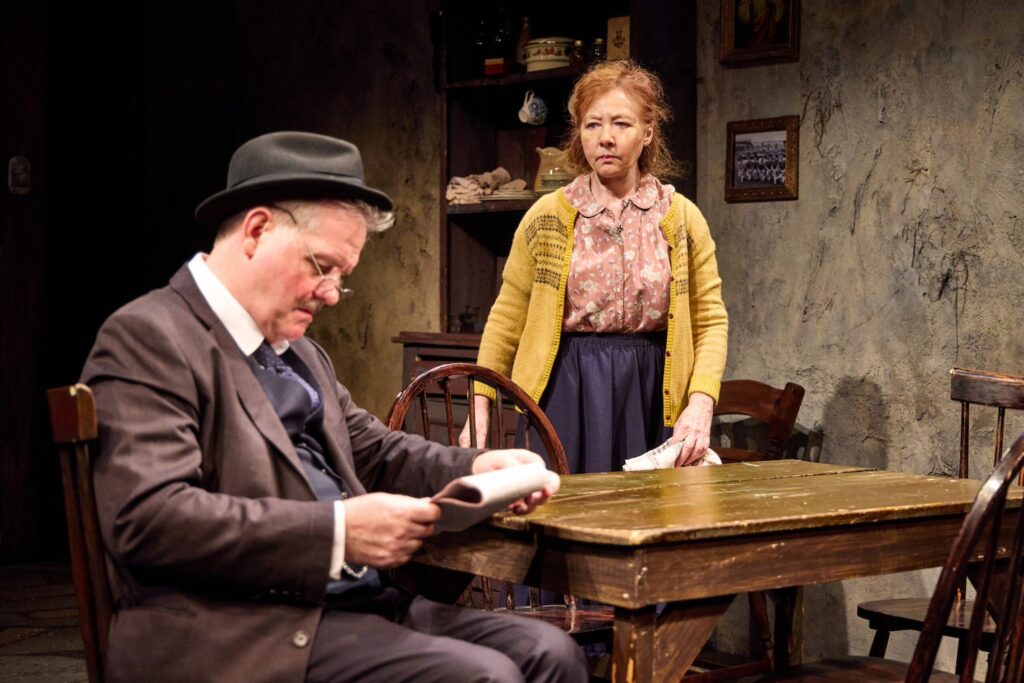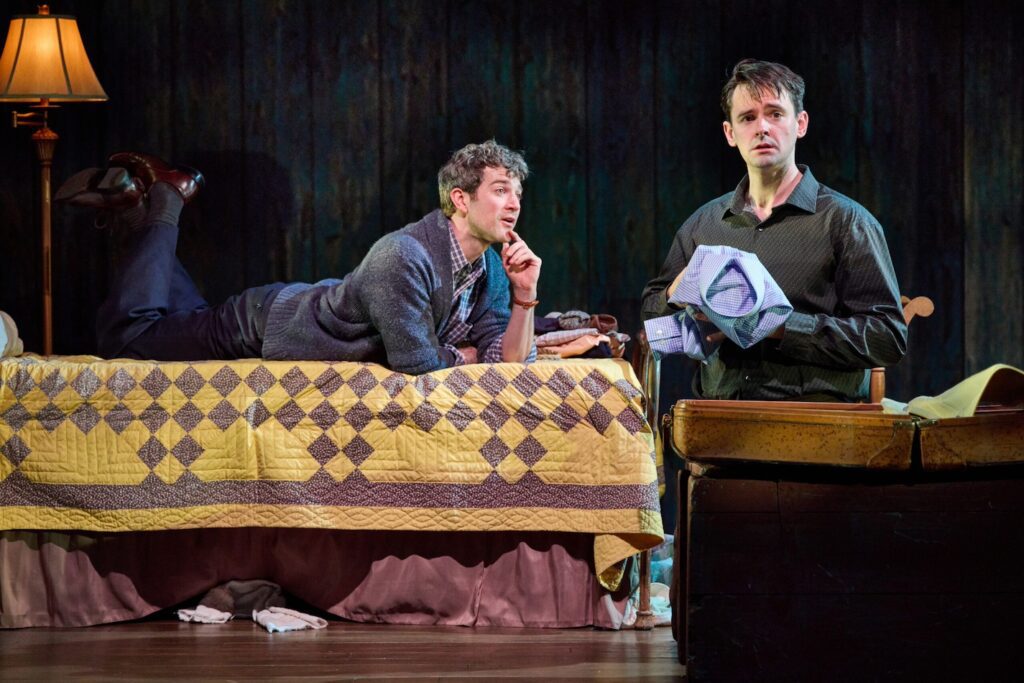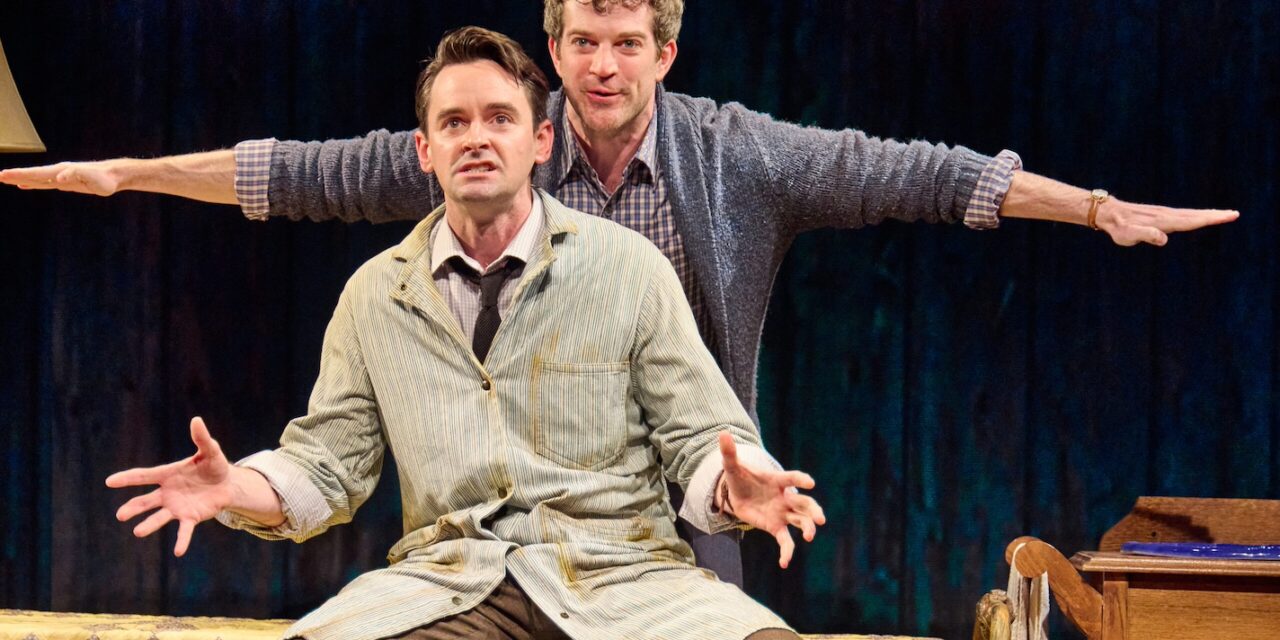Theater Review by Ron Fassler . . . .
As a fan of Anton Chekhov, I can’t tell you the number of times my heart is broken when I attend a production of one of his plays. Delicate masterworks, they require ensemble acting of the highest quality and, more often than not, they are miscast and misdirected (fingers crossed that the new adaptation of Uncle Vanya, opening in a few weeks at Lincoln Center, comes off well). I mention this due to the Irish Rep’s “Friel Project,” its season-long salute to playwright Brian Friel. In his sixty-year career, one greatly influenced by Chekhov, the Irish-born Friel was fortunate to have lived nearly twice as long as his Russian counterpart—who died at forty-four—with two dozen plays published and produced in his lifetime. Poetic, prolific, and a sensitive writer of deep passions and empathy, the first of his plays to reach Broadway was sixty years ago with Philadelphia, Here I Come. Irish Rep has now returned to the play, having mounted it twenty years ago, also under the direction of Ciarán O’Reilly, the company’s longtime producing director. Not only does the Irish-born O’Reilly feel the characters and where it’s set in his bones, he contributes his talents as an actor in this production as well. In this flawlessly cast version, it’s a joy to report how successful an evening in the theater this is.

Considering how Friel grew in six decades of refining his craft, this early work sketches out many of the deeper themes that followed. Still, it can’t be argued that it continues to hold power over its audience because of its aching honesty and total lack of glibness. One of Friel’s greatest achievements as a writer is that he knew how to be heartfelt without ever being cloying. Under O’Reilly’s gentle direction, all the actors have a chance to glow, and every scene is infused with a melancholy that enriches the action.
Philadelphia, Here I Come covers the last twenty-four hours its young protagonist will spend in the only place he’s known since birth, the fictional Donegal town of Ballybeg, where Friel set the majority of his plays. The chance to get out has finally opened for the 25-year-old Gar O’Donnell by way of a job in a hotel awaiting him in Philadelphia. Deeply conflicted, he will have to leave a father for whom he works and from whom he is coldly detached and a housekeeper who’s been his surrogate mother since the untimely death of his mother when he was a child. Like Chekhov, there is more unsaid than said when it comes to expressing true emotions for these three leading characters, but Friel had an ingenious solution to sharing some of those with his audience. He splits the role of Gar into two halves—performed by two actors—the “public” and the “private” personae. This allows full rein for the id to speak loudly and forcefully, giving voice to a wide range of subtexts, expressing inner joy one moment and total ambivalence the next. This could easily be tiring, but not in the hands of a writer as fine as Friel. David McElwee (“public”) and A.J. Shively (“private”) manage to instill their parts with a similarity while also remaining wildly different. It never gets old. Shively, who was Tony-nominated two seasons ago for the short-lived musical Paradise Square, is thoroughly charming and gets the opportunity to sing and dance a bit, which comes naturally to him. McElwee shines, bringing a range of color to his pallid character’s drab life. In a cast of fourteen, it is he who carries the show on his shoulders—and he does an excellent job with it.


Terry Donnelly, in a beautifully calibrated performance, fusses about with a cleaning cloth, or her rosary beads, to perfection. As mentioned, Ciarán O’Reilly excels as a man of few words, bringing all kinds of unexpressed pain and pathos as the father. Standouts also include Patrick Fitzgerald’s gentle underplaying of a burnt-out schoolmaster, and Deirdre Madigan, who enters late in Act One in a burst of playful plot-turning. When this full company takes its curtain call, it’s a pleasure to see such a large cast fill the small Francis J. Greenburger stage.
As always, the Irish Rep’s design team works wonders. The functional and lived-in set by Charlie Corcoran is lovely, costumes by Orla Long are impeccably rendered, and Michael Gottlieb’s lighting sets a mood and tone that are faultless. In one scene, he infuses a soft glow about the “private” Gar that sent chills up my spine.
If any theater lover may be still unfamiliar with Ireland’s most renowned playwright of the latter half of the twentieth century, there’s a fix for that. Philadelphia, Here I Come is running now through May 5, and another of Friel’s gems, Molly Sweeney, begins performances May 15.
Philadelphia, Here I Come. Through May 5 at the Irish Repertory Theatre (132 West 22nd Street, between Sixth and Seventh Avenues). www.irishrep.org
Photos: Jeremy Daniel


















